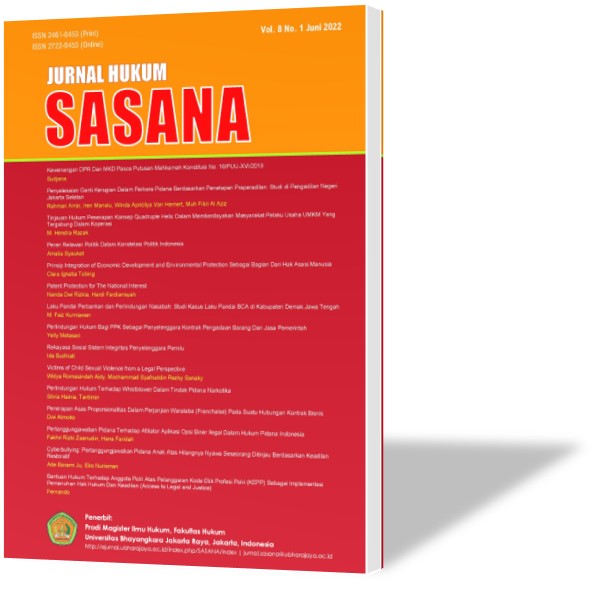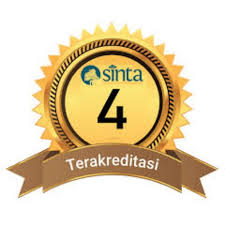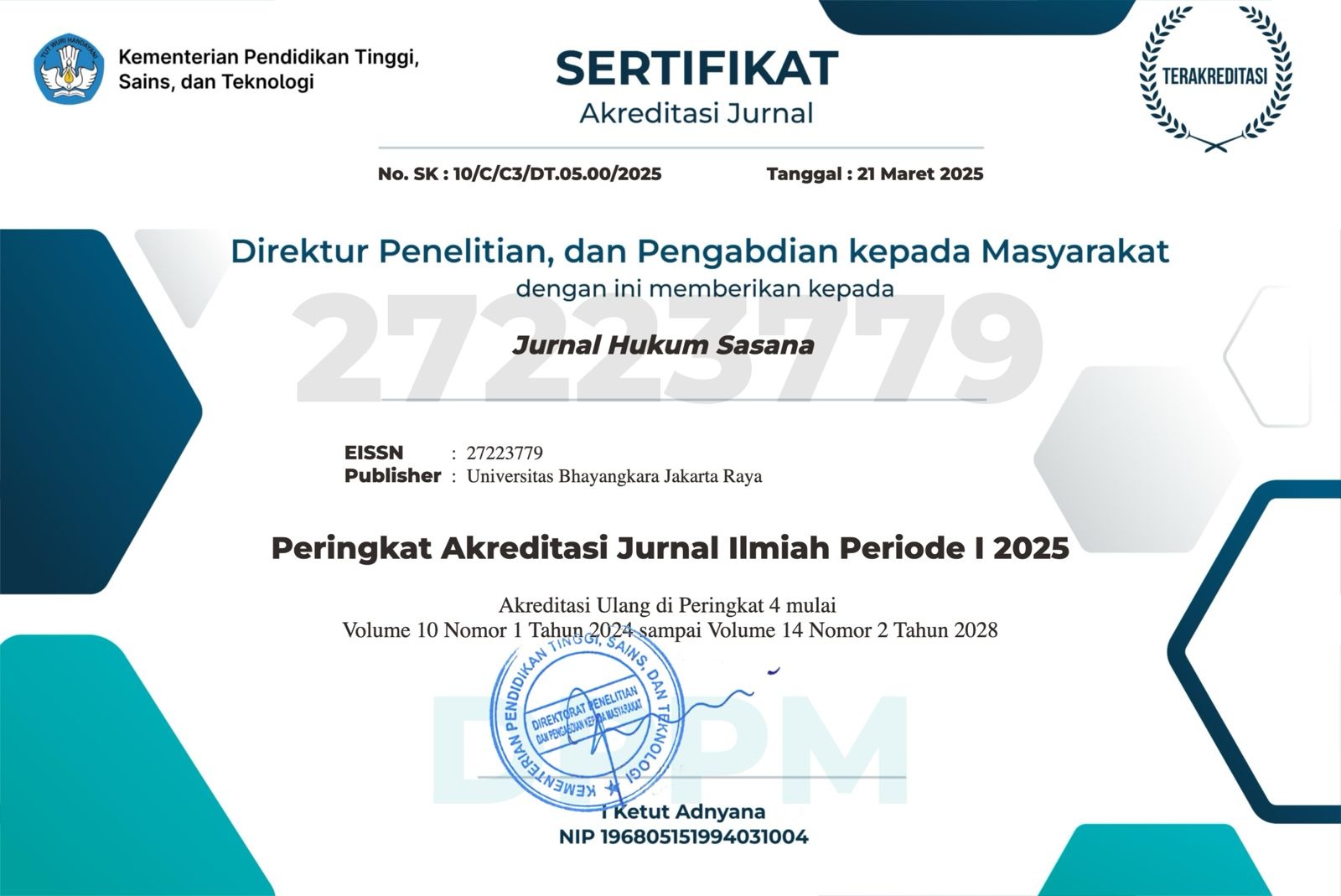Personal Data Protection Of Artificial Intelligence In The Public Interest
DOI:
https://doi.org/10.31599/sasana.v11i1.3225Keywords:
Articial Intelligence, Regulation, OfficialAbstract
The rapid development of artificial intelligence has a major influence on society. Speculations and paradigms in society give rise to many pros and cons regarding artificial intelligence. The research is classified as normative juridical research, utilizing written materials as data sources. Qualitative research methods are employed to describe and analyze various phenomena and perspectives. The research relies on secondary data from library research, including official documents, research reports, and primary legal materials with authoritative significance. In Indonesia, the rules regarding artificial intelligence can only rely on Regulation No. 27 of 2022. Unfortunately, this is also happening globally. There is no official policy governing the use of artificial intelligence. However, Personal data breaches often due to artificial intelligence cannot rely solely on that regulation. Artificial intelligence does have many benefits and uses, but the disadvantages and problems caused by artificial intelligence cannot be underestimated. Official regulations regarding artificial intelligence are needed to be a solution in protecting personal data that is often harmed by artificial intelligence.
Downloads
References
Alex Jean-Charles, Internet of Things in Education: Artificial Intelligence Voice Assistant in the Classroom, Proceedings of Society for Information Technology & Teacher Education International Conference
Amiruddin and H. Zainal Asikin, Pengantar Metode Penelitian Hukum (Jakarta: PT. Raja Grafindo Persada, 2006)
Arnold Verbeek, Maria Lundqvist, Artificial intelligence, blockchain and the future of Europe: How disruptive technologies create opportunities for a green and digital economy (Luxembourg: European Investment Bank, 2021)
Cynthia Dwork, Adam Smith,Thomas Steinke, and Jonathan Ullman, Exposed! A Survey of Attacks
Dongsong Zhang, Virtual Mentor and the Lab System — Toward Building an Interactive, Personalized, and Intelligent E-Learning Environment, Journal of Computer Information Systems, 2004, Volume 44, p35-43
Edmon Makarim dalam Simposium Hukum Nasional bertajuk “Peran Hukum dalam Menyongsong Revolusi Industri 4.0” 2019,
Khatulistiwa: Jurnal Pendidikan dan Sosial Humaniora Vol.3, No.3, September 2023 e-ISSN: 2962-4010; pISSN: 2962-4444, Hal 83-101 DOI: https://doi.org/10.55606/khatulistiwa.v3i3. 1860
Maryani Farwati, Irenda Talitha Salsabila, Kholifah Raihanun Navira, Tata Sutabri, ANALISA PENGARUH TEKNOLOGI ARTIFICIAL INTELLIGENCE (AI) DALAM KEHIDUPAN SEHARI-HARI, Jurnal SIstem Informasi dan Management, Vol 11 No 1 (2023): Volume 11 Nomor 1 2023
Michael Haenlein, Andreas Kaplan, Chee-Wee Tan dan Pengzhu Zhang, Artificial Intelligence (AI) And Management Analytics, Journal of Management Analytics Volume 6, 2019 - Issue 4
Muhammad Ardiansyah Arifin Owen Maskintama Nugroho Adhi Pratama, Indonesia Abuse of Defamation Clause In Article 27 Section (3) Of Electronic Information And Transaction Law, South East Asia Journal of Contemporary Business, Economics and Law, Vol. 23, Issue 1
R. Pakpahan, “ANALISA PENGARUH IMPLEMENTASI ARTIFICIAL INTELLIGENCE DALAM KEHIDUPAN MANUSIA,” Journal of Information System, Informatics and Computing Issue Period, vol. 5, no. 2, pp. 506–513, 2021, doi: 10.52362/jisicom.v5i2.616.
T. Sutabri, Pamungkur, A. Kurniawan, and R. E. Saragih, “Automatic attendance system for university student using face recognition based on deep learning,” Int J Mach Learn Comput, vol. 9, no. 5, pp. 668–674, Sep. 2019, doi: 10.18178/ijmlc.2019.9.5.856.
The Ethics of the Ethics of AI Thomas M. Powers and Jean-Gabriel Ganascia The Oxford Handbook of Ethics of AI Edited by Markus D. Dubber, Frank Pasquale, and Sunit Das
Zainal Asikin, Pengantar Metode Penelitian Hukum, (Jakarta: Raja Grafido Persada, 2004)
Zed Mestika, Metode Penelitian Kepustakaan, (Jakarta: IKAPI DKI Jaya, 2004)
Downloads
Published
Issue
Section
License
Copyright (c) 2025 Clara Ignatia Tobing

This work is licensed under a Creative Commons Attribution-NonCommercial 4.0 International License.













_-_Copy1.jpg)




